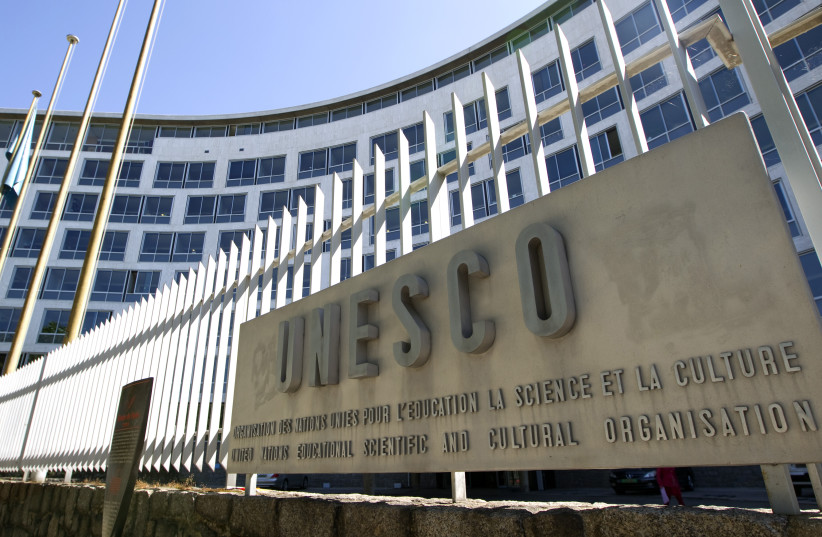Congress has approved a waiver by which the Biden administration can rejoin UNESCO, even though the global body recognized the “State of Palestine” as one of its 193 members in 2011.
At the time, the former Obama administration abided by a US edict that called for the withdrawal of US funds from UN bodies that recognize Palestinian statehood prior to the conclusion of a final-status agreement for a two-state solution to the conflict with Israel.
In 2011, the US immediately halted its funding to the Paris-based United Nations Educational, Cultural and Scientific Organization. The Trump administration withdrew from the organization in 2019.
The Biden administration, however, has sought to rejoin UNESCO and restore American funding to that global body.
The congressional omnibus bill, which Congress approved on Thursday just before the Christmas holiday, provided language that allowed the Biden administration to restore funding to that body.

To do so, US President Joe Biden must report to the Senate and the House of Representatives that rejoining UNESCO “would enable the US to counter Chinese influence or to promote other national interests of the United States.”
Congress clarified in the omnibus bill that the waiver “shall cease to have effect if, after enactment of this act, the Palestinians obtain the same standing as member states or full membership as a state in the UN or any specialized agency” unless, again, an agreement is reached for a two-state solution.
It added that the waiver would end by September 30, 2025.
What did Israel do after the change in 2011?
Israel followed the US both in halting its funding to UNESCO in 2011 and in withdrawing from the organization in 2019.
Israel and UNESCO have also been at odds over the organization's registration of World Heritage sites to the "State of Palestine," including the Tomb of the Patriarchs. It also worked to deflect a Palestinian Authority push at UNESCO to describe the Temple Mount as solely a Muslim site.
American Jewish Committee chief policy and political affairs officer Jason Isaacson said that under the guidance of UNESCO's Director General Audrey Azoulay "anti-Israel measures have been sidelined and UNESCO has intensified its work on Holocaust education and the fight against antisemitism.
"The move to restore US membership was made in close consultation with Israel -- and in recognition of the fact that continued US absence from the agency was a gift to America's and Israel's adversaries," he said.
